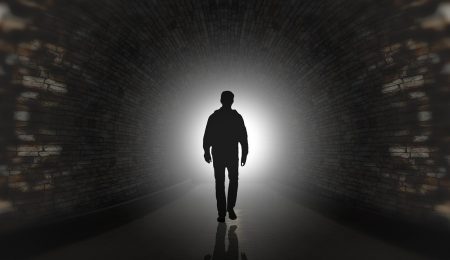John: How is it being married to a hot coal?
Q: Yes. After we were sitting together, this kind of a vortex opened up which I was sucked right into, and I was just there.
John: That completely alters your relationship.
Q: There’s little to no understanding, and little experience, just small glimpses. It’s really just tiny, tiny little subtle streams. We’re really starting to move as one.
John: Unpack as much as you can.
Q: What do you mean by ‘unpack’?
John: Those streams, for you, are really subtle but they’re not small and they’re not really that subtle, even though you perceive them to be. While those streams are moving, respond to them as much as you can. Unpack and identify what’s in it as much as you can. Unpack it while it continues.
In time it’s going to change, so while it’s there, give it a lot of attention. Be in it as much as you can and unpack as much of it as you can. You’re not going to get the same classroom, that same particularized kind of learning. You get it once, so while it’s there, really, really, be in it. Put everything into it. Put your whole relationship into it, and draw everything of that from her that you can. When that classroom is over, then that’s it. Whatever you did with it, that’s it and then there’s the next.
Q: If you miss unpacking in the first classroom and there’s the next, is it more cumbersome to move in it because you didn’t build on the foundation of the previous one? Can you still build and fill in a foundation?
John: Yes, and it will be tougher. Up at the front of the room, when you make the most of a classroom, it’s the most demanding, but then everything that you make the most of really sticks. In the next classroom, when you try to recoup something that you missed before, it won’t be as difficult but it also doesn’t stick as well.
When it first opens, it doesn’t open with any kind of understanding. All there is, is a point of direct knowledge. So it’s the easiest to cover up and neglect. There’s not much experience to it, but the greatest opportunity is when it first shows. It costs the most because you would be surrendering to what you know the truth of. There’s no experience to back it, but that’s the greatest opportunity. It costs you the most because you’re investing everything you are into something in your self you have no ground in, and it’s harder to come into. All you have is that you know it’s true, and it’s worth everything you are.
So the first opportunity shows up as the smallest, but it’s actually the biggest. The next opportunity appears to be a little bit larger, but it’s actually a little bit smaller. Then, as each subsequent opportunity of that level comes up, you experience it more and more so it seems easier and easier to come into, but it’s actually more difficult and the opportunity is not as great.
What’s really wonderful in the way that law works is that once you start to realize it you really start to get it. So then when a new level of opportunity comes up, you don’t wait for the next one to have more evidence, in your experience, of something you already know the truth of. You’re not going to wait for the evidence. As soon as you know, you’re in.
Q: Is that where compound evolution comes in?
John: Yes.
Q: Is there any value or truth in a little retrospective work?
John: With retrospective work, you realize what you missed in previous opportunities. You realize what those components are, and you realize what it required of you that you didn’t give. You put all of that together and come to a real heart understanding of what surrender actually means, where it counts the most. Then when a new opportunity opens for the first time, you’ve already, in a sense, signed the contract before the goods even appear.
Q: Which is also retroactive?
John: Yes, so then when it does open a tiny little bit you are completely there and you’re in. I saw a bumper sticker, fifteen, twenty years ago, and I thought it was pretty good. It read: ‘God, please let there be another oil boom and I promise not to blow it all away’.
Q: Really appropriate to what you’re telling us.
John: You don’t realize what you have until it’s all spent and gone.






